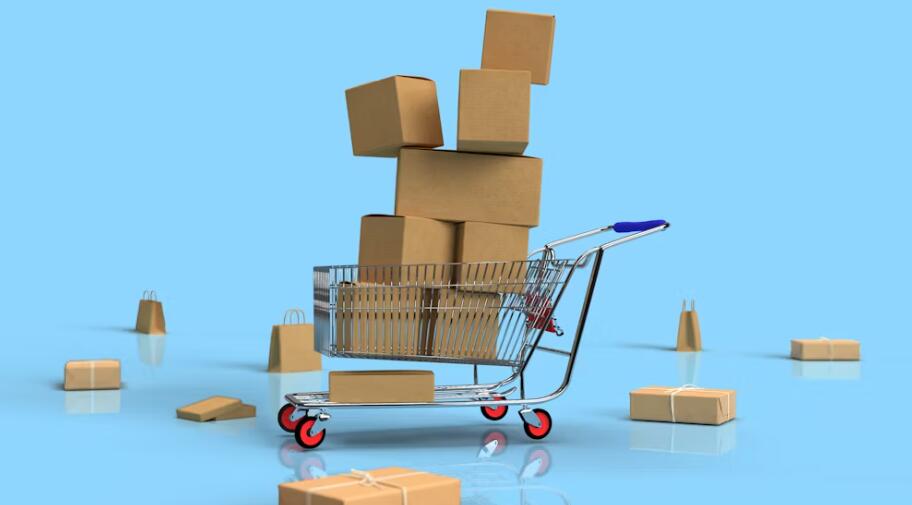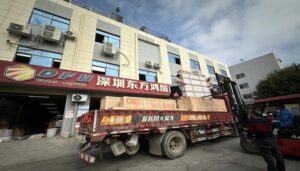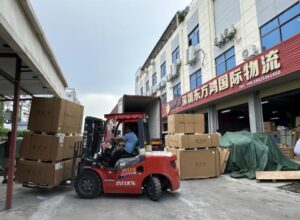Shipping from China can unlock huge business growth—but as someone who’s been in international logistics for over a decade (I’m co-founder of DFH Logistics) I’ve also seen how easily things can go wrong. In this article I’ll walk you through exactly how to avoid shipping-related scams when sourcing from Alibaba in 2025—from supplier vetting to payment safeguards to delivery checks. The goal: you get your goods, clear customs, and deliver on time without the nightmare of losing money or being stuck with unusable stock.
Avoiding Alibaba shipping scams in 2025 requires verifying suppliers, using secure payments, clear shipping contracts, and trusted freight forwarders. Follow these practical steps to ensure safe, fraud-free importing from China.
What are the most common shipping scams on Alibaba?
Scams often occur when the supplier claims they will ship but does not, changes bank details last-minute, or uses fake logistics documentation. Recognising these patterns early helps prevent major loss.
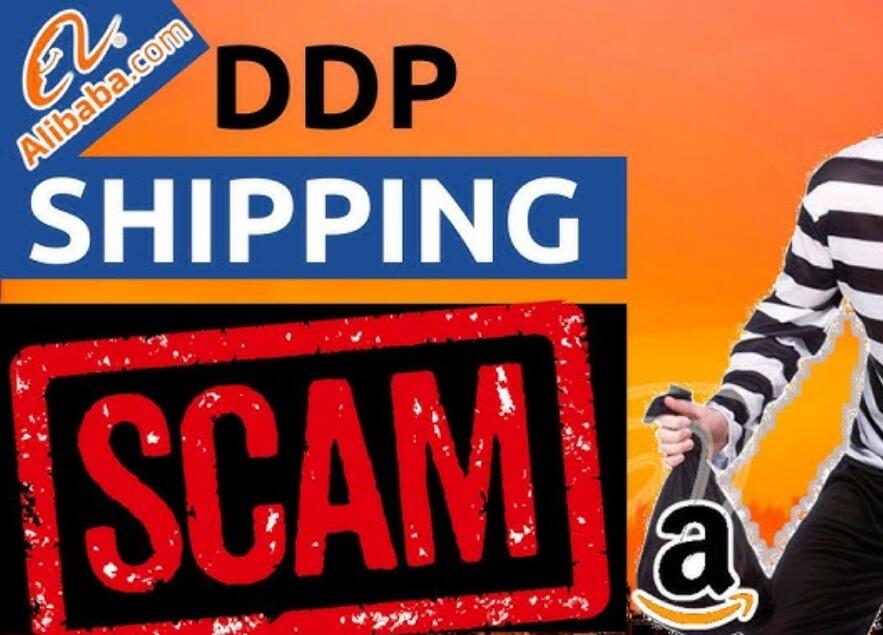
When you source on Alibaba, you’re frequently working across borders, cultures and legal systems. Here are the most common shipping-scam scenarios I’ve observed in the logistics field:
- Non-delivery after payment: You pay a deposit or full payment, and the supplier disappears—or they provide “proof of shipping” that’s fake, or send ghost shipments.
- Changing payment details mid-process: A supplier asks you to wire to a new bank account after you’ve already committed, outside of Alibaba’s platform. That’s a major red flag.
- Fake or inadequate logistics/clearance documentation: They claim export licences, valid shipping marks, customs cleared status, but the goods either get stuck, destroyed, or redirected.
- Quality mismatch disguised as shipping/fulfilment issue: They ship something that looks okay in photos but on arrival you find material, dimensions or packaging totally wrong—so you feel cheated even if something shipped.
- Too-good-to-be-true price or brand claims: Supplier offers branded products with huge discounts and promises express shipping; such deals often end with fake goods or no goods at all.
Understanding these patterns is the first step in protecting your logistics chain when shipping from China.
How can I properly vet an Alibaba supplier before shipping?
Use platform-tools (Trade Assurance, Verified status), check transaction history and credentials, validate bank and company contact details and request live proof. This upfront vetting dramatically reduces risk.
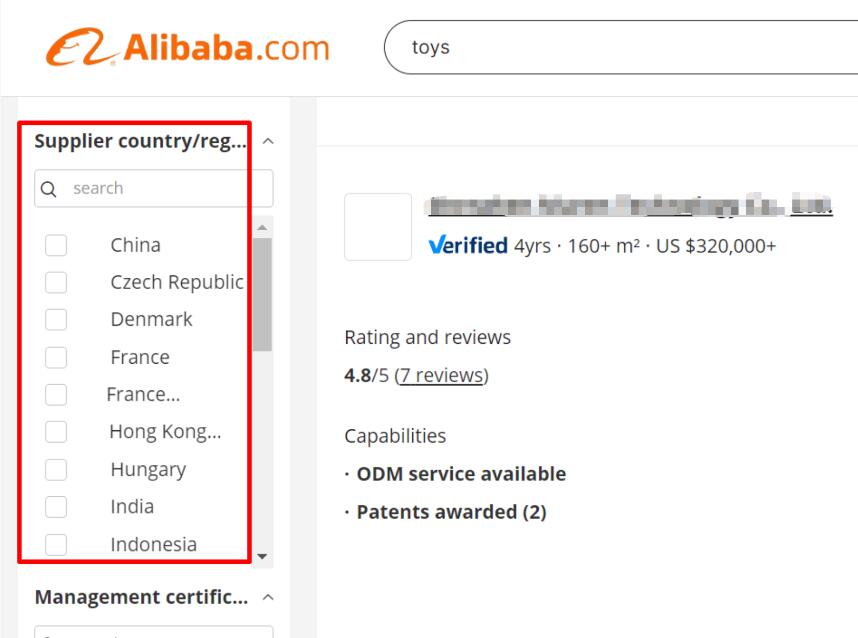
From my logistics experience, I recommend the following robust vetting checklist:
Check Supplier Status on Alibaba
- Look for “Verified Supplier” badges—they indicate third-party inspection of business licence, factory, export ability.
- Prefer suppliers flagged as “Gold Supplier” with multiple years of activity. Longer history means more transaction data.
- But note: status alone isn’t guarantee—some scams still made it through.
Review Transaction History & Ratings
- How many orders completed? What’s buyer feedback like? Are there negative comments about shipping or fulfilment?
- If the company is newly registered, proceed with extreme caution.
Request Company Credentials
- Ask for business licence, export licence, factory/facility pictures, ideally live video tour showing operations.
- Confirm that the company name, bank account name and address match details shown on Alibaba. Mismatches are a warning sign.
Check Payment Bank Details Early
- The bank account must belong to the same legal entity as the supplier name. If the supplier later changes bank account or demands payment outside the Alibaba platform, stop.
- Avoid suppliers insisting on payments via Western Union, MoneyGram, crypto or direct overseas bank transfer without trace.
Order Sample First & Inspect
- Before committing to full shipment, request a sample sent, inspect quality, packaging, and verify logistics coordination with your freight forwarder.
- This helps you verify product meets your specs and shipping route works.
By following these steps, you create a strong foundation to avoid scams in the sourcing and shipping phase.
What payment methods and contract terms protect my shipping from risk?
Use payment channels that retain traceability and dispute-capabilities (like Alibaba Trade Assurance or credit card via platform), split payments by milestones, and include shipping/inspection clauses in your contract.
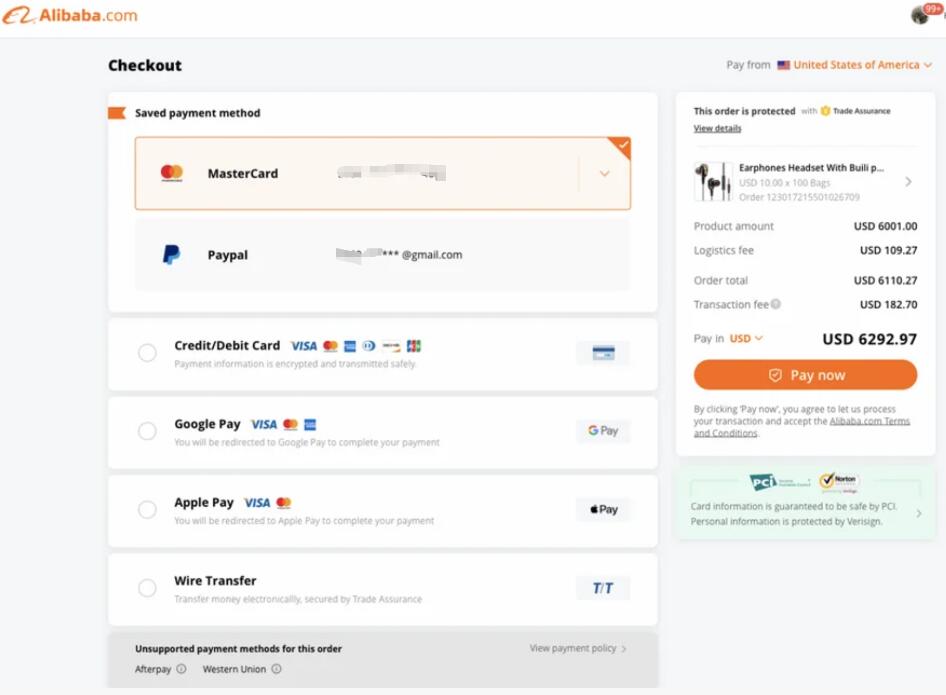
From the logistics side, this is where many importers get tripped up. Here are best practices:
Use Platform-Secured Payments
Use Alibaba’s Trade Assurance or platform payment methods where available. These create a record of transaction and provide buyer protection if goods are not shipped or don’t meet agreed specs.
Avoid off-platform payments (e.g., direct bank transfers abroad) unless you know the supplier extremely well.Split Payment by Milestones
For larger orders, negotiate payment structure: e.g., 30% deposit, 50% at production completion/photo evidence, 20% after inspection and before shipping.
This motivates supplier to comply and gives you leverage.Include Inspection & Shipping Clauses
Incorporate contract terms that clarify: packing list, boxing/marking, date of production, date of shipment, shipping method, forwarder name, expected arrival, insurance.
Specify what happens if goods don’t match sample, arrive late, or get held at customs.Define Shipping Responsibility (Incoterms)
Agree on Incoterms (e.g., DDP, DAP, FOB) in writing. Especially for shipping from China, using DDP (delivered duty paid) means the supplier handles export and import duties—this reduces your risk of hidden charges or shipping delays.
At DFH Logistics we often advise clients to make sure the Incoterm is crystal clear in the PI (pro-forma invoice) and contract.Ensure Communication Records
Keep all chats/emails on Alibaba or other recorded channels. If a dispute arises, you’ll need proof of agreed terms, changes, and shipping details.
These steps reduce payment-and-shipping risk significantly.
How should I monitor the shipping process to avoid issues during transit and delivery?
Monitor shipping from factory to destination: verify freight forwarder, insurance, tracking updates, customs clearance status, and final delivery. Early detection of deviation avoids major losses.
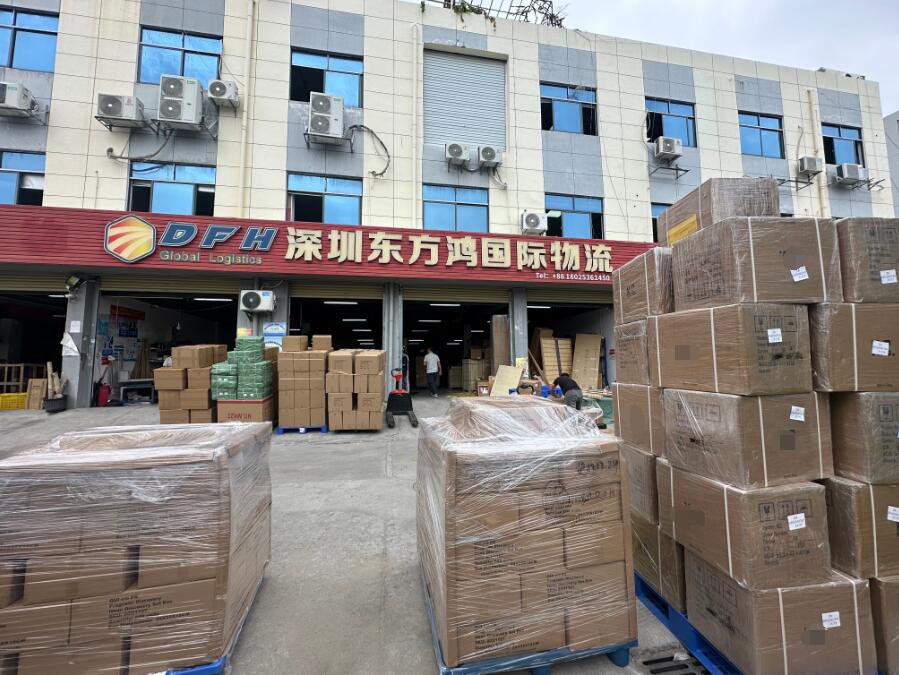
From my logistics operations background I recommend a chain-of-custody approach for shipping:
- Choose a Trusted Freight Forwarder
If the supplier cannot provide credible forwarder information, or insists on using a forwarder you don’t know, that’s a red flag.
As a shipping agent with 12+ years’ experience I’ve seen “supplier picks cheap un-vetted forwarder” lead to lost containers or customs problems.
Here you can read more: How to Find Reliable Freight Forwarder Companies in China?
Confirm Pre-Shipment Inspection
Before export, have the goods inspected (by you or a third-party) for compliance with your specs, and check packaging is export-ready. Document it with photos/videos.
At DFH Logistics we always include this step for large or high-value shipments.Get Tracking and Shipment Info
Once goods ship, obtain freight tracking number, vessel or airway bill number, container number, ETA and incoterm responsibilities.
If the supplier delays or can’t provide this information, push hard before releasing final payment.Insurance & Risk Management
For ocean or air freight, make sure insurance covers transit risks (damage, loss, theft). Confirm whether the supplier or you arrange insurance—this should be included in your shipping contract.Monitor Customs Clearance
Especially for shipments to e-commerce warehouses (e.g., Amazon) or personal imports, ensure HS code, declaration accuracy, duties/taxes are calculated and paid. Scams often occur via mis-declared shipment leading to hold/penalty.
As a forwarder, DFH Logistics often catches mis-declared shipments early and avoids costly delays for clients.
Here you can read more: How to Avoid Customs Delays When Shipping from China
- Final Mile Delivery Confirmation
Ensure that the goods are delivered to the correct destination (warehouse, Amazon FBA, importer address) and that condition on arrival matches your expectations. If unacceptable, launch dispute immediately and document everything.
By treating shipping as a controllable process—not just “send and hope”—you reduce the chance of being scammed.
What should I do if I realise I’m being scammed or something goes wrong?
Act quickly: collect documentation, file a dispute via Alibaba, notify your bank/credit card, engage your freight forwarder and inspect salvage options. Fast action increases recovery chances.
Despite all precautions, things can still go wrong. Here’s how to respond effectively:
Gather Documentation Immediately
Collect your contract, pro-forma invoice, payment receipts, communication logs (emails/chat), shipping/tracking documents, photos/videos of goods upon arrival (or non-arrival). Having this evidence strengthens your case.Open a Dispute via Alibaba (or Platform Used)
If you used Alibaba’s payment method or Trade Assurance, use the platform’s dispute resolution process. Submit your evidence and keep within timeline standards.Contact Your Bank / Credit Card Company
If you paid via credit card or a regulated channel, notify the bank of possible fraud and inquire about chargeback or reversal options.Work with Your Freight Forwarder / Customs Agent
If shipment is in transit or stuck at customs, your forwarder might be able to intervene—arrange storage, redirect, or salvage some value. Having an experienced forwarder like DFH Logistics provides an added layer of protection.Leave Reviews and Warn Others
Post feedback on the supplier profile, Alibaba reviews, and sourcing communities. It’s not just about retribution—it helps others avoid the same trap.Re-evaluate Your Process for Next Time
Use the experience as a learning point: revisit your supplier vetting, contracting, logistics monitoring, payment terms and shipping oversight. Turn the risk into improved SOPs.
By being proactive rather than passive you maximise your chance to mitigate damage.
Why choose DFH Logistics as your Alibaba Shipping Agent
With 12+ years of experience in global freight forwarding, DFH Logistics offers secure, transparent, and efficient solutions for Alibaba buyers—covering pickup, consolidation, customs clearance, duties, and door-to-door delivery.
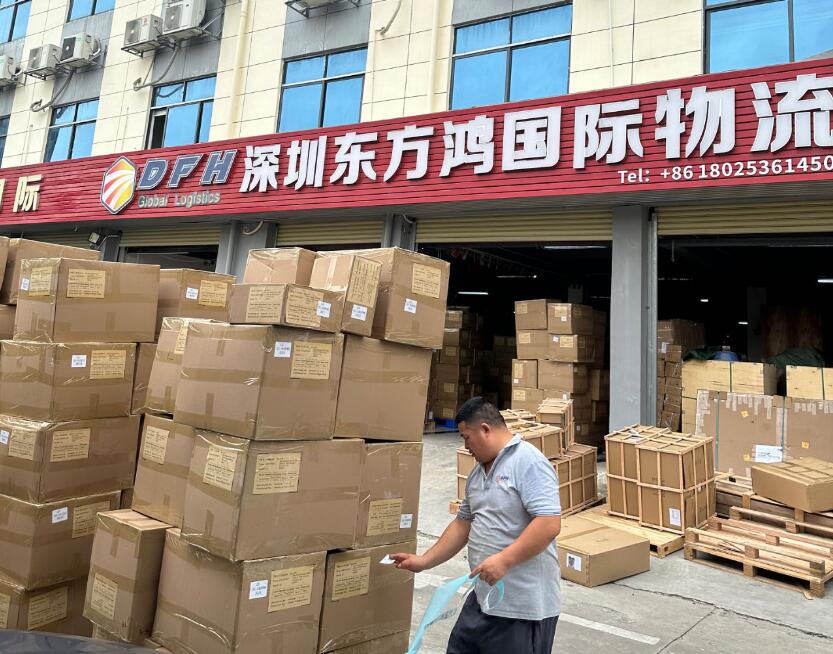
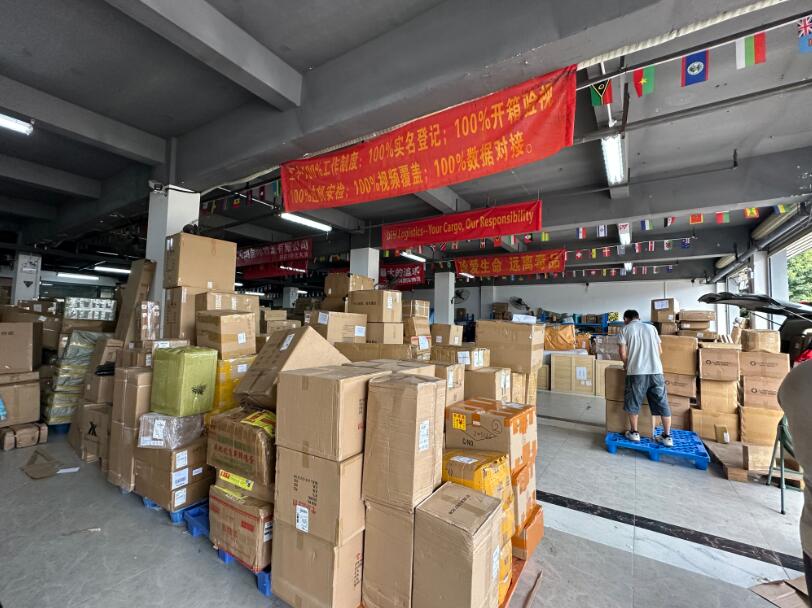
At DFH Logistics, we’ve handled thousands of Alibaba shipments for clients worldwide—from Amazon sellers to small importers. Our expertise ensures every shipment is verified, protected, and delivered safely.
Here’s what makes DFH Logistics the trusted partner for Alibaba sourcing and shipping:
End-to-End Shipping Solutions
We manage the entire logistics process—from supplier pickup and consolidation in our Shenzhen warehouse to customs clearance and final delivery abroad.DDP Door-to-Door Expertise
Our Delivered Duty Paid (DDP) service covers customs clearance, import duties, and taxes, ensuring hassle-free delivery to your business, home, or Amazon warehouse.Transparent Pricing & Documentation
We provide upfront, all-inclusive quotations with no hidden fees, along with complete export documents to guarantee compliance.Customs Clearance Support
Our in-house team handles export declarations for Chinese suppliers without export rights and ensures smooth import clearance overseas.Dedicated Customer Service
You’ll have a single point of contact monitoring your shipment, keeping you updated with photos, tracking numbers, and status reports until delivery.
By partnering with DFH Logistics, you get more than a shipping agent—you gain a reliable logistics partner who protects your investment and ensures your Alibaba sourcing journey remains safe, fast, and profitable.
Conclusion
Sourcing on Alibaba offers tremendous opportunity—but with cross-border shipping comes risk. Over 12 years at DFH Logistics I’ve seen where the weak links lie: supplier verification, payment integrity, contract clarity, and shipping oversight. If you apply the vetting methods, payment safeguards and shipping monitoring I’ve described above, you will position your business to avoid scams—and deliver reliably to your customers.
Ultimately, it’s about treating your sourcing and shipping like a structured project, not hoping for the best. When you treat logistics as a controllable process, you build trust, protect margin and ensure you remain on schedule.
If you’d like to go deeper into any of these steps—supplier audits, freight forwarder selection, or customs clearance checklists—feel free to contact DFH Logistics for guidance.

